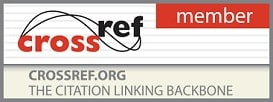Impact Factor: Impact Factor(RJIF): 5.3
International Journal of Home Science
2022, VOL. 8 ISSUE 1, PART C
Utilization of dehydrated ginger in the preparation of herbal tea
Author(s): Kumari Pallavi
Abstract:
The present study entitled “Utilization of dehydrated ginger in the preparation of herbal tea†was conducted with the objective to develop herbal tea using dried ginger and other types of ingredients, to assess the sensory accessibility of the prepared herbal tea, to determine the cost of prepared herbal tea. Ginger is used widely both as a seasoning and herbal medicine. The active compounds contained in ginger are divided into two groups: volatile essential oils and fragrant or harsh phenol compounds. Two types of ginger, fresh and dried, are used in the herbal medicine (Qin and Xu, 2008). Herbal Teas are commonly consumed for its therapeutic and energizing properties, since it can help to induce relaxation. Being able to aid with stomach or digestive problems, herbal teas can help provide cleansing properties to the body, and strengthens the immune system as well (Kumar, 2014). Herbal tea were prepared by using four treatments T1 (Ginger 2.00gm, Cloves 1.00gm, Black pepper 1.00gm, Lemon Peels 0.50gm, Cinnamon 0.25gm, and Tulsi 0.25gm), T2 (Ginger 2.50gm, Cloves 1.00gm, Black pepper 0.50gm, Lemon Peels 0.50gm, Cinnamon 0.25gm, and Tulsi 0.25gm), T3 (Ginger 3.00gm, Cloves 0.50gm, Black pepper 0.50gm, Lemon Peels 0.50gm, Cinnamon 0.25gm, and Tulsi 0.25gm) and T4 (Ginger 3.50gm, Cloves 0.25gm, Black pepper 0.25gm, Lemon Peels 0.50gm, Cinnamon 0.25gm, and Tulsi 0.25gm). Organoleptic evaluation of the prepared product in relation to sensory attributes was carried out using the nine point hedonic scale score card. All treatments were replicated three times and the data obtained during investigation were statistically analyzed by using analysis of variance (ANOVA) and critical difference (C.D.) techniques. On the basis of sensory acceptability it was found that T2 was scored highest in terms of colour and appearance, consistency, flavor and taste and overall acceptability. The cost of the herbal tea per 5g of dry ingredients at the prevailing cost of the raw materials was highest in T1 (Rs. 6.15) followed by T4 (Rs. 6.13), T2 (Rs. 6.11) and T3 (Rs. 6.09). Ginger is loaded with antioxidants, compounds that prevent stress. They may help to body to fight against chronic diseases like high blood pressure, heart disease, and diseases of the lungs, plus promote healthy aging.
The present study entitled “Utilization of dehydrated ginger in the preparation of herbal tea†was conducted with the objective to develop herbal tea using dried ginger and other types of ingredients, to assess the sensory accessibility of the prepared herbal tea, to determine the cost of prepared herbal tea. Ginger is used widely both as a seasoning and herbal medicine. The active compounds contained in ginger are divided into two groups: volatile essential oils and fragrant or harsh phenol compounds. Two types of ginger, fresh and dried, are used in the herbal medicine (Qin and Xu, 2008). Herbal Teas are commonly consumed for its therapeutic and energizing properties, since it can help to induce relaxation. Being able to aid with stomach or digestive problems, herbal teas can help provide cleansing properties to the body, and strengthens the immune system as well (Kumar, 2014). Herbal tea were prepared by using four treatments T1 (Ginger 2.00gm, Cloves 1.00gm, Black pepper 1.00gm, Lemon Peels 0.50gm, Cinnamon 0.25gm, and Tulsi 0.25gm), T2 (Ginger 2.50gm, Cloves 1.00gm, Black pepper 0.50gm, Lemon Peels 0.50gm, Cinnamon 0.25gm, and Tulsi 0.25gm), T3 (Ginger 3.00gm, Cloves 0.50gm, Black pepper 0.50gm, Lemon Peels 0.50gm, Cinnamon 0.25gm, and Tulsi 0.25gm) and T4 (Ginger 3.50gm, Cloves 0.25gm, Black pepper 0.25gm, Lemon Peels 0.50gm, Cinnamon 0.25gm, and Tulsi 0.25gm). Organoleptic evaluation of the prepared product in relation to sensory attributes was carried out using the nine point hedonic scale score card. All treatments were replicated three times and the data obtained during investigation were statistically analyzed by using analysis of variance (ANOVA) and critical difference (C.D.) techniques. On the basis of sensory acceptability it was found that T2 was scored highest in terms of colour and appearance, consistency, flavor and taste and overall acceptability. The cost of the herbal tea per 5g of dry ingredients at the prevailing cost of the raw materials was highest in T1 (Rs. 6.15) followed by T4 (Rs. 6.13), T2 (Rs. 6.11) and T3 (Rs. 6.09). Ginger is loaded with antioxidants, compounds that prevent stress. They may help to body to fight against chronic diseases like high blood pressure, heart disease, and diseases of the lungs, plus promote healthy aging.
Pages: 152-154 | 465 Views 335 Downloads
How to cite this article:
Kumari Pallavi. Utilization of dehydrated ginger in the preparation of herbal tea. Int J Home Sci 2022;8(1):152-154.






